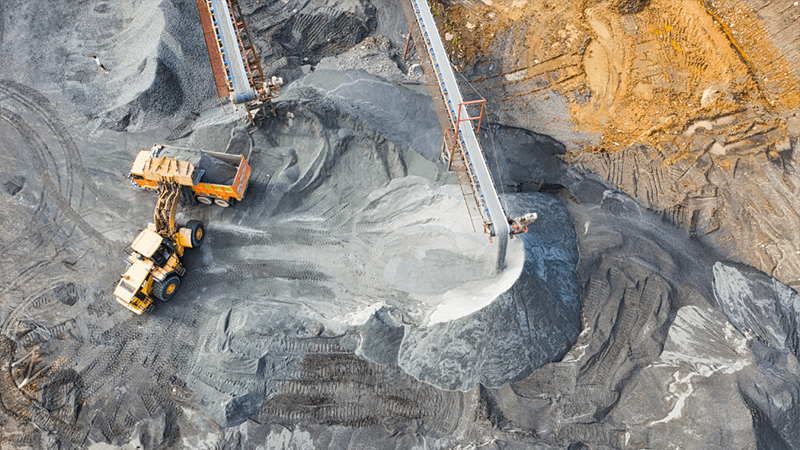What is Rock Excavation? A Comprehensive Guide

What is rock excavation?
At its core, rock excavation involves the strategic removal of solid rock from an excavation site. This process is essential for creating stable foundations and enabling the smooth progress of construction work.
Tools like the rockwheel play a vital role in efficiently breaking down rock masses, helping projects stay safe and on schedule. When professionals master the various methods and techniques of rock excavation, they enhance safety and improve on-site productivity.
In this blog, we’ll explore the different methods of rock excavation, examine the equipment used, and highlight the importance of safety protocols. Keep reading to learn how effective rock excavation sets the stage for construction success.
Key Takeaways
- Rock excavation involves several methods, including mechanical techniques with specialized equipment like rockwheels and rockcrushers, blasting with explosives, and alternative methods like chemical removal and electrical disintegration.
- Proper training, safety gear, and adherence to regulations are critical to protecting workers and ensuring the efficient removal of rock, which is vital for preparing construction sites for stable foundations.
- RockZone America tackles complex rock excavation challenges with innovative approaches and state-of-the-art equipment.
What is Rock Excavation?
Rock excavation involves removing solid rock from an excavation site to pave the way for construction projects such as building foundations, tunnels, and roads.
Unlike common excavation, which typically deals with soil and loose materials, rock excavation requires specialized techniques and equipment to handle dense, compacted, or cemented materials. The presence of rock mass and fragments beneath the surface often poses challenges that demand precision and expertise.
Rocks and boulders in different landscapes can significantly impact construction projects, requiring careful planning and execution. Excavating rock is crucial for creating stable foundations and ensuring the structural integrity of buildings and infrastructure.
Types of Rock Excavation
Selecting the right method for rock excavation is essential for efficiency and safety. Here are the two primary methods: Mechanical and blasting.
Mechanical methods
Mechanical methods use heavy machinery like excavators and bulldozers to remove rock masses.
These machines come equipped with specialized attachments like rockwheels, rockcrushers, rippers, hydraulic jackhammers, and rock trenchers to break and remove rock fragments. Rockwheels and rockcrushers grind down the rock, while rippers pull or tear it apart. Hydraulic jackhammers and trenchers rely on impact force to break through the material.
This method offers precision and safety by giving operators close control over the equipment.
Mechanical excavation is ideal for compacted or cemented materials and manageable rock depths. It is less suitable for extreme formations or deep excavation sites where the rock's density exceeds machinery capacity.
Blasting methods
Blasting is often used for large-scale projects or challenging rock formations. It involves drilling holes into the rock mass, filling them with explosives, and detonating to fracture the rock. Blasting can clear vast areas quickly and is preferred when mechanical methods are insufficient.
Safety protocols are critical during blasting to prevent accidents and ensure compliance with regulations. This includes calculating the correct amount of explosives and securing the site to protect personnel and structures.
Alternative Methods of Rock Excavation
While mechanical and blasting methods are common in rock excavation, certain projects and site conditions may require alternative approaches. These methods provide unique advantages and effectively tackle challenges that traditional techniques cannot address.
Chemical removal
Chemical removal uses expansive chemicals to crack rocks, making it highly effective for compacted or cemented materials.
This method reduces vibrations and noise, which is crucial for sensitive excavation sites or urban areas. However, chemical removal is slower and can be affected by weather conditions, such as temperature and humidity, which impact the chemical reaction and efficiency.
Thermal techniques
Thermal techniques use extreme heat to crack rocks, ideal for rock types that respond well to thermal expansion. This method heats the rock's surface until it expands and fractures for easy removal.
While effective for certain stone structures, thermal techniques consume a lot of energy and aren't suitable for all rock types or settings.
Electrical disintegration
Electrical disintegration breaks down rock into smaller fragments using electric currents. This method provides precise rock breaking without explosives or heavy equipment.
It is ideal for sites requiring precision and minimal disturbance, but it demands specialized equipment and expertise to ensure safe and effective execution.
Factors Affecting Rock Excavation

Successful rock excavation requires careful planning and consideration of various factors that influence the process. These factors determine the choice of methods and equipment, safety protocols, and the overall excavation approach.
Rock type and structure
The type of rock at an excavation site significantly impacts excavation difficulty and method selection.
Sedimentary rocks like limestone are softer and easier to excavate, while metamorphic rocks such as marble and slate are more compact and challenging. Igneous rocks, including granite and basalt, are the hardest and often require blasting or heavy machinery.
Drilling and boring can assess the rock mass, identifying its structure and characteristics. This information helps contractors choose the best method for rock removal, ensuring the process is efficient and safe.
Site conditions and considerations
Assessing the site for boulders, underground structures, and land features identifies potential challenges. Slopes, walls, or edges often require specialized techniques or equipment for safe excavation.
Ground-penetrating technology is vital for scanning subsurface rock, revealing the location and size of buried formations. This information allows contractors to plan their excavation strategy effectively and avoid unexpected obstacles.
Safety protocols
Both mechanical and blasting methods involve risks that require strict safety standards to protect workers and equipment. Operators and site workers must undergo training to handle machinery and explosives safely.
Safety measures include wearing protective gear, monitoring environmental conditions, and following best practices for equipment operation. Proper disposal of rock fragments and handling of explosives must be conducted according to safety regulations.
Turn to RockZone America for Your Excavation Needs
Tackling rock excavation challenges requires expertise, precision, and the right technology to transform rugged terrain into workable land.
At RockZone America, we understand the frustration of dealing with dense, compacted, or cemented materials that stall progress and inflate costs.
Our innovative approaches and state-of-the-art equipment are designed to overcome these obstacles and keep your project on track without compromising safety. Our team is equipped to handle the most demanding excavation sites, from tackling steep slopes and hidden underground structures to managing deep boulders and rock fragments.
Don’t let tough terrain slow down your project. Call RockZone America today and let us enhance your construction project with our outstanding rock excavation services.
Summary
Rock excavation is a crucial process in construction that demands a strategic approach to manage various rock types and challenging site conditions.
Methods such as mechanical, blasting, and alternative techniques like chemical removal and electrical disintegration are chosen based on factors like rock type and depth. Safety protocols ensure the efficient and secure removal of rock, transforming rugged terrain into workable land and paving the way for foundations and other structures.
RockZone America excels in rock excavation, providing tailored solutions that utilize the latest techniques and technologies. Our expertise and commitment to safety ensure that your project progresses smoothly, overcoming any challenges posed by the excavation site.
Frequently Asked Questions
What is the simple definition of excavation?
Excavation is the process of digging and removing earth, rock, or other materials from a site to prepare it for construction or other purposes.
It involves the use of various methods and equipment to shape the land, create foundations, and clear obstacles, ensuring that the ground is suitable for building and development projects.
What is excavation used for?
Excavation is used for a wide range of construction projects, including building foundations, tunnels, roads, and other infrastructure.
Excavation removes rock and soil to prepare sites for foundation and structure installation, ensuring smooth construction and maintaining the stability and integrity of the built environment.
What is the meaning of rock in construction?
In construction, rock refers to solid, natural materials that form the Earth's crust and can pose challenges during excavation due to their density and hardness. Rocks and boulders often require specialized techniques and equipment to break, remove, and shape them.
What is the breaking method of rock excavation?
The breaking method of rock excavation involves using mechanical techniques or blasting to fracture and remove rock from a construction site.
Mechanical methods use equipment like rockwheels, rockcrushers, and hydraulic jackhammers, while blasting involves drilling and using explosives to break the rock into manageable fragments for removal and site preparation.
How to measure rock excavation?
Measuring rock excavation involves calculating the volume of material removed, typically using techniques like surveying and 3D modeling.
Surveyors use tools such as laser scanners and GPS to assess the excavation site's dimensions and contours, providing accurate measurements of the rock and soil displaced during the excavation process.
What are the three types of excavation?
The three types of excavation are earth excavation, rock excavation, and muck excavation.
Earth excavation involves removing soil to create a stable base; rock excavation focuses on breaking and removing solid rock formations, and muck excavation deals with the removal of waterlogged soil or a combination of water and soil.
